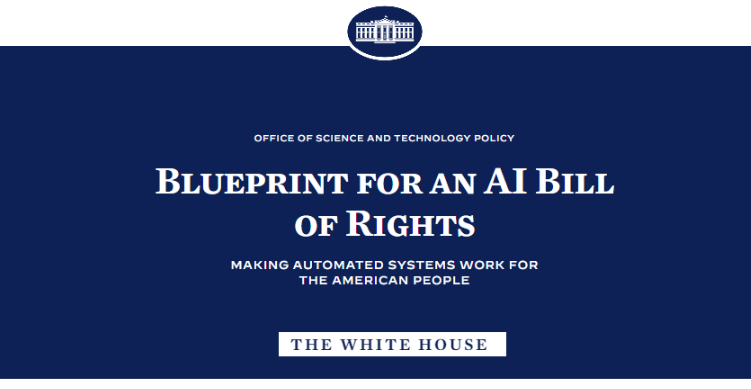(This article appeared as an OSTP BLOG post on October 4, 2022.)
Among the great challenges posed to democracy today is the use of technology, data, and automated systems in ways that threaten the rights of the American public. Too often, these tools are used to limit our opportunities and prevent our access to critical resources or services. These problems are well documented. In America and around the world, systems supposed to help with patient care have proven unsafe, ineffective, or biased. Algorithms used in hiring and credit decisions have been found to reflect and reproduce existing unwanted inequities or embed new harmful bias and discrimination. Unchecked social media data collection has been used to threaten people’s opportunities, undermine their privacy, or pervasively track their activity—often without their knowledge or consent.
These outcomes are deeply harmful—but they are not inevitable. Automated systems have brought about extraordinary benefits, from technology that helps farmers grow food more efficiently and computers that predict storm paths, to algorithms that can identify diseases in patients. These tools now drive important decisions across sectors, while data is helping to revolutionize global industries. Fueled by the power of American innovation, these tools hold the potential to redefine every part of our society and make life better for everyone.
This important progress must not come at the price of civil rights or democratic values, foundational American principles that President Biden has affirmed as a cornerstone of his Administration. On his first day in office, the President ordered the full Federal government to work to root out inequity, embed fairness in decision-making processes, and affirmatively advance civil rights, equal opportunity, and racial justice in America.[i] The President has spoken forcefully about the urgent challenges posed to democracy today and has regularly called on people of conscience to act to preserve civil rights—including the right to privacy, which he has called “the basis for so many more rights that we have come to take for granted that are ingrained in the fabric of this country.”[ii]
To advance President Biden’s vision, the White House Office of Science and Technology Policy has identified five principles that should guide the design, use, and deployment of automated systems to protect the American public in the age of artificial intelligence. The Blueprint for an AI Bill of Rights is a guide for a society that protects all people from these threats—and uses technologies in ways that reinforce our highest values. Responding to the experiences of the American public, and informed by insights from researchers, technologists, advocates, journalists, and policymakers, this framework is accompanied by From Principles to Practice—a handbook for anyone seeking to incorporate these protections into policy and practice, including detailed steps toward actualizing these principles in the technological design process. These principles help provide guidance whenever automated systems can meaningfully impact the public’s rights, opportunities, or access to critical needs.
Download the Blueprint for an AI Bill of Rights.
[i] The Executive Order On Advancing Racial Equity and Support for Underserved Communities Through the Federal Government. https://www.whitehouse.gov/briefing-room/presidential-actions/2021/01/20/executive-order-advancing-racial-equity-and-support-for-underserved-communities-through-the-federal-government/
[ii] The White House. Remarks by President Biden on the Supreme Court Decision to Overturn Roe v. Wade. Jun. 24, 2022. https://www.whitehouse.gov/briefing-room/speeches-remarks/2022/06/24/remarks-by-president-biden-on-the-supreme-court-decision-to-overturn-roe-v-wade/


